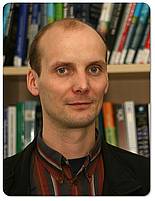

Event Date: June 12, 2014 16:15
From Web 2.0 to the Ubiquitous Web

Millions of users are active in the Web 2.0 and enjoy services likeFlickr, Twitter or Facebook. These services are not only used on thecomputer at home but more frequently on smartphones which have becomemore powerful in the last years. Thus, large amounts of content but alsoof usage data are collected - partially with location information usingGPS in smartphones - which allow for various analyses e.g. on the socialrelationship of users. Enriching subjective data like human perceptionsby additional low cost sensor information (not only using smartphonesbut also virtually every device) is an important next step on the waytowards establishing the ubiquitous web. Researchers, especially frommachine learning, data mining, and social network analysis, areinterested in these kinds of data enhanced by additional sensorinformations and work on novel methods and new insides into theunderlying human relationship and interactions with the environment.
One common phenomenon of the Web 2.0 is tagging, observed in manypopular systems. As an example, we will present results on data from ourown social tagging system BibSonomy, which allows the management ofbookmarks and publications. The system is designed to supportresearchers in their daily work but it also allows the integration anddemonstration of new methods and algorithms. Beside a new rankingapproach which was integrated into BibSonomy, we present resultsinvestigating the influence of user behaviour on the emergent semanticsof tagging systems. Starting from results on simple tagging data, thetalk will present results on the combination of user data - againexpressed as tags - and sensor data - in this case air qualitymeasurements - as an example of the emergent ubiquitous web. We willdiscuss the upcoming area of combining these two information sources togain new insides, in this case on environmental conditions and theperceptions of humans.
CV
Andreas Hotho is professor at the university of Würzburg and the head of the DMIR group. Prior, he was a senior researcher at the university of Kassel. He is working in the area of Data Mining, Semantic Web and Mining of Social Media. He is directing the BibSonomy project at the KDE group of the university of Kassel. Andreas Hotho started his research at the AIFB Institute at the University of Karlsruhe where he was working on text mining, ontology learning and semantic web related topics.
